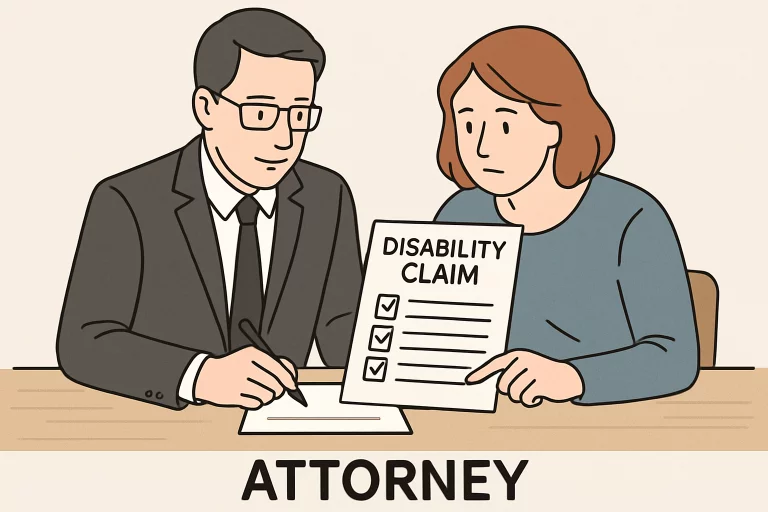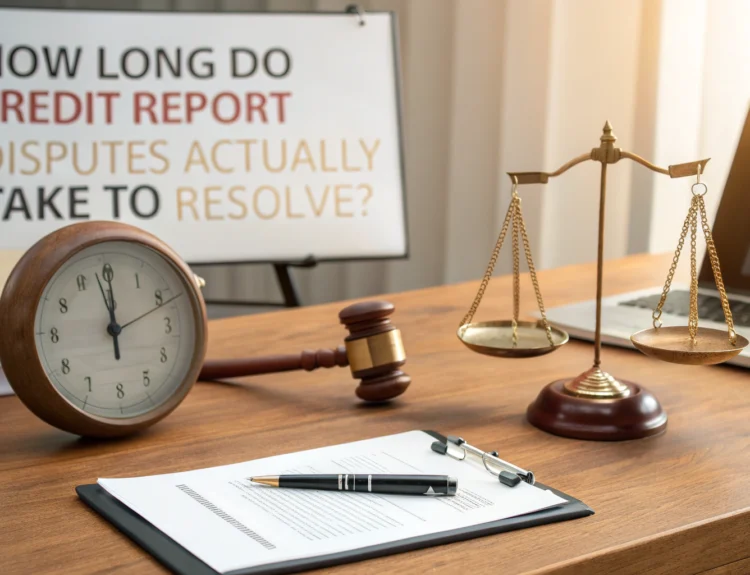Contents
Key Takeaways
- Legal representation nearly doubles the chances of claim approval.
- Attorneys ensure accurate and complete applications, reducing errors.
- Experienced lawyers adeptly navigate the appeals process, increasing success rates.
Table of Contents
- Introduction
- Increased Approval Rates with Legal Representation
- Comprehensive Application Preparation
- Expert Navigation of the Appeals Process
- Effective Communication with Medical Providers
- Understanding of Social Security Regulations
- Conclusion
Introduction
Navigating the process to secure social security disability benefits is often complex, intimidating, and overwhelming for many applicants. From deciphering government forms to compiling detailed medical histories, the layers of bureaucracy can be discouraging, particularly for individuals already dealing with health challenges. Because even minor clerical errors or missing information can result in a denial, many claimants face setbacks before presenting their whole story. This is where the guidance of an experienced attorney becomes invaluable, bringing professional insight and advocacy to every stage of the claims process—from initial filing to hearing appeals, if necessary.
Engaging a knowledgeable lawyer as early as possible reduces the risk of technical mistakes and significantly increases the likelihood of a favorable outcome. These legal professionals draw on their in-depth understanding of the intricate Social Security laws and years of hands-on experience to make a compelling case. They provide clients with practical support, helping each individual navigate the maze of legal requirements and procedural steps confidently. For those seeking to maximize their chances for approval, legal representation offers a strategic advantage that is difficult to match.
Increased Approval Rates with Legal Representation
The dramatic difference that legal representation makes is reflected in approval statistics. Studies indicate that nearly 60% of applicants represented by attorneys receive approval for their claims, while only about 34% of self-represented individuals achieve the same result. This almost twofold increase is not a coincidence but a testament to the value attorneys bring to the process. Their thorough knowledge of Social Security regulations, combined with their methodical approach, is crucial in avoiding pitfalls that often undermine applications submitted by individuals without legal guidance.
Attorneys bring valuable insight when evaluating the unique strengths and challenges of each disability case. They carefully examine work history, medical records, and personal factors to build a thorough understanding of the situation. With in-depth knowledge of Social Security Administration (SSA) eligibility criteria, they craft applications that align with the agency’s specific requirements. Legal professionals are skilled at presenting compelling, well-supported arguments that can withstand close examination, significantly improving the chances of approval. For individuals navigating this process, consulting a choosing disability lawyer guide can be an essential first step in finding the right advocate.
Many Social Security disability claim denials stem from technical errors, such as incomplete or inaccurate forms, missing signatures, or inadequate medical documentation. These avoidable obstacles frequently delay the process or result in outright rejections, forcing applicants to start over or pursue time-consuming appeals. Attorneys experienced in Social Security law prioritize comprehensive application preparation, eliminating these common pitfalls. They systematically gather, organize, and present all necessary evidence, from medical records and work history to personal statements attesting to the client’s daily limitations and challenges.
By managing these complex requirements, lawyers ensure every application is as robust as possible at the outset. They know which supporting documents carry the most weight and how to structure the application for clarity and impact. Their dedication to detail reduces the risk of mistakes and helps avoid delays that can stretch on for months—or even years—if not handled correctly.

The Role of Legal Expertise in Documentation
One of the most critical benefits attorneys provide is their ability to translate complex requirements into persuasive legal arguments. Their knowledge goes far beyond simply filling out forms—they construct compelling narratives, gathering and highlighting evidence that aligns with the strict criteria used by SSA adjudicators. Attorneys help their clients understand why certain documents are necessary and how to secure them, while also assisting with the technical language and requirements of official forms.
Through their experience and insight, lawyers reduce clients’ emotional burden and give them confidence in the completeness of their cases. This reassurance is especially important for individuals coping with serious medical issues, offering support and clarity at every step.
Even with the best preparation, some initial claims are denied, requiring claimants to engage in a multi-step appeals process. These procedures typically include a request for reconsideration, a hearing before an administrative law judge, and possibly subsequent appeals to higher authorities. Each stage comes with unique rules, deadlines, and evidentiary requirements, which can be overwhelming for unrepresented individuals.
Attorneys specializing in Social Security disability claims excel at guiding clients through this labyrinthine process. They are adept at identifying missing or weak evidence and act swiftly to gather supporting documentation and solicit expert testimony if needed. Lawyers also represent their clients during hearings, ensuring their clients’ stories are thoroughly and persuasively presented. Their familiarity with court protocols, legal terminology, and SSA precedents allows them to anticipate and counter objections, dramatically increasing the odds of a successful appeal.
For those facing denial, an attorney is an invaluable ally. They help strategize, advocate, and fight for their clients’ rights to benefits at every step.
Effective Communication with Medical Providers
At the heart of every successful Social Security disability claim is thorough medical evidence that clearly illustrates the extent and impact of the claimant’s physical or mental impairments. However, medical records alone are not always sufficient: it is critical for the documentation to address the specific questions and criteria that the SSA uses to evaluate disability. Experienced attorneys routinely communicate with doctors, specialists, and treatment providers to secure comprehensive and focused documentation. They know which details—such as explicit functional limitations and work-related restrictions—are most persuasive in supporting the claim.
In addition, lawyers often assist clients in requesting tailored “medical source statements” or written opinions from healthcare professionals, which can make all the difference in establishing eligibility. When framed in the context of SSA guidelines, these statements serve as robust evidence in both initial applications and on appeal.
Throughout the process, attorneys act as a bridge between the medical community and the applicant, translating complex clinical information into language and concepts that are clear and compelling for SSA evaluators.
Understanding of Social Security Regulations
Social Security law is a highly specialized area, full of complicated rules, standards, and statutory requirements. Navigating this system can be especially daunting for those unfamiliar with legal language or bureaucratic processes. Attorneys focusing on Social Security disability continuously educate themselves about regulatory updates, critical judicial rulings, and SSA policy changes. This ongoing commitment enables them to craft arguments that precisely fit the latest standards, quickly identify potential weaknesses in an application, and respond effectively to the challenges presented by claims examiners.
By thoroughly understanding SSA’s ever-evolving regulations, lawyers avoid simple errors that can torpedo a case and are poised to leverage every possible advantage in the law to benefit their clients. This expertise not only streamlines the process but can be the deciding factor in securing much-needed financial assistance for those unable to work due to disability. For further resources about the claims process and regulations, visit the official SSA Disability Benefits page or review the SSA’s Red Book Glossary.
Conclusion
Although it is possible to apply for Social Security disability benefits without legal representation, the risks of denial due to mistakes or lack of thoroughness are substantial. Attorneys with considerable experience in this field offer claimants a range of essential services: from expert preparation of the initial application and effective communication with medical professionals to in-depth knowledge of Social Security regulations and skilled advocacy throughout the appeals process. Ultimately, engaging an attorney often means distinguishing between a denied claim and a life-changing approval. By working with a legal professional, applicants can secure the support and financial security they need to focus on their health and well-being.




